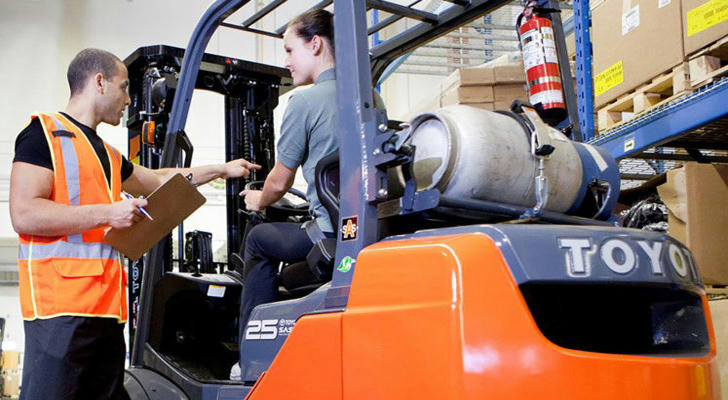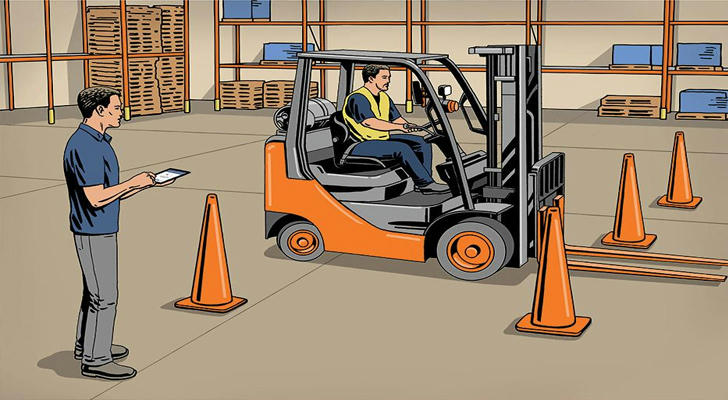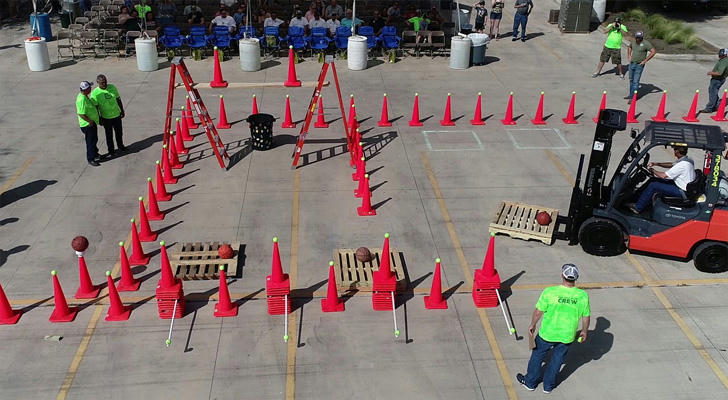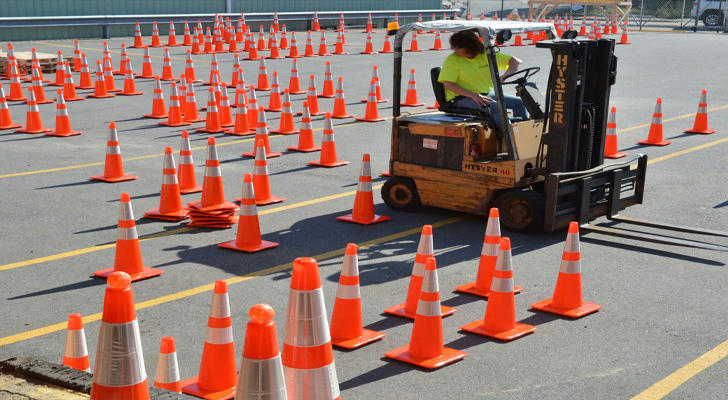Forklift Operations: A High-Demand Skill in Modern Industry

Forklift operators play a crucial role in warehouses, construction sites, and manufacturing facilities. They ensure the safe and efficient movement of heavy materials, keeping supply chains and industrial operations running smoothly. As e-commerce sales in the U.S. surpassed $1.1 trillion in 2023 (U.S. Census Bureau) and global trade continues to expand, the demand for skilled forklift operators remains strong.
This article explores the responsibilities of forklift operators, job prospects, training requirements, and how to start a career in this field.

What Do Forklift Operators Do?
Forklift operation involves more than just driving. Operators must manage materials carefully, follow workplace regulations, and ensure equipment safety. Their key responsibilities include:
Loading and Unloading Goods: According to the U.S. Bureau of Labor Statistics (BLS), material handling accounts for over 70% of warehouse tasks. Forklift operators ensure the proper loading and unloading of goods to prevent product damage and workplace accidents.
Inventory Organization: Operators assist in keeping warehouse storage efficient, following digital tracking systems to place goods in the correct locations.
Equipment Inspection and Maintenance: Forklifts require daily pre-shift inspections to check for mechanical issues, fluid levels, and brake functionality. The Occupational Safety and Health Administration (OSHA) mandates regular inspections to prevent accidents.
Workplace Safety Compliance: Forklift-related incidents cause over 7,000 injuries annually in the U.S. (OSHA). Operators must follow strict safety guidelines, including speed limits, load balancing, and wearing protective gear.
Supporting Logistics and Transportation: In 2022, U.S. ports handled over 45 million shipping containers (American Association of Port Authorities). Forklift operators play a critical role in unloading and transferring these goods efficiently.
The Growing Demand for Forklift Operators
Forklift operators are essential in multiple industries, and job growth in this sector remains steady. The BLS projects a 7% increase in demand for material-moving machine operators between 2022 and 2032, adding approximately 80,000 new jobs in the U.S.
Industries That Heavily Rely on Forklift Operators
Warehousing and E-Commerce: Major retailers like Amazon and Walmart operate over 1,000 fulfillment centers in the U.S., requiring thousands of forklift operators to manage logistics.
Construction: The U.S. construction industry, valued at $2.1 trillion in 2023 (U.S. Census Bureau), depends on forklift operators to transport heavy materials like concrete, steel, and lumber.
Manufacturing: Factories use forklifts to move raw materials and finished products, contributing to the 12.3 million manufacturing jobs in the U.S. (National Association of Manufacturers, 2023).
Ports and Shipping Centers: The Port of Los Angeles alone handles over 9 million containers annually, requiring forklift operators to unload goods efficiently.
Automotive Industry: Forklifts play a crucial role in auto assembly plants, which produced over 10 million vehicles in 2023 (Auto Alliance USA).

How to Become a Forklift Operator
1. Complete Training and Certification
Most employers require forklift operators to complete an OSHA-approved certification course. Training covers load handling, safety protocols, and machine operation. Programs are available online or through vocational schools and job centers.
2. Gain Hands-On Experience
Forklift training includes practical exercises, allowing trainees to practice maneuvering, stacking, and lifting materials. Some employers offer on-the-job training, enabling new hires to gain experience while working.
3. Understand Safety Regulations
With 70% of forklift accidents caused by human error (National Safety Council), operators must follow strict safety guidelines. Learning to balance loads properly and conduct daily equipment inspections is essential.
4. Explore Career Advancement Opportunities
With experience, forklift operators can progress to roles like warehouse supervisor, logistics manager, or heavy equipment operator. Specialized certifications, such as Hazardous Materials Handling or High-Capacity Forklift Operation, can lead to higher-paying positions.

Real-Life Example: Mark’s Career Growth
Mark, a 28-year-old former restaurant worker, struggled with job instability. After researching high-demand careers, he completed an OSHA forklift training course and obtained his certification.
Within six months, Mark secured a full-time position at a distribution center earning $20 per hour. His attention to safety and efficiency led to a promotion as a lead operator, increasing his salary by 25%. He is now training for a warehouse management position, proving that forklift operation offers long-term career growth.
The Future of Forklift Operations
As automation expands, some warehouses are introducing self-driving forklifts. However, human operators remain essential for managing inventory, troubleshooting equipment, and ensuring workplace safety. According to MHI Industry Reports (2023), over 90% of logistics companies still rely on human forklift operators, meaning this profession will remain vital.
Conclusion
Forklift operators are a key part of industries like warehousing, construction, and manufacturing. With steady job growth and career advancement opportunities, forklift operation is a valuable and accessible career choice. By obtaining proper training, gaining hands-on experience, and following safety regulations, individuals can build a stable and rewarding career in this essential field.
